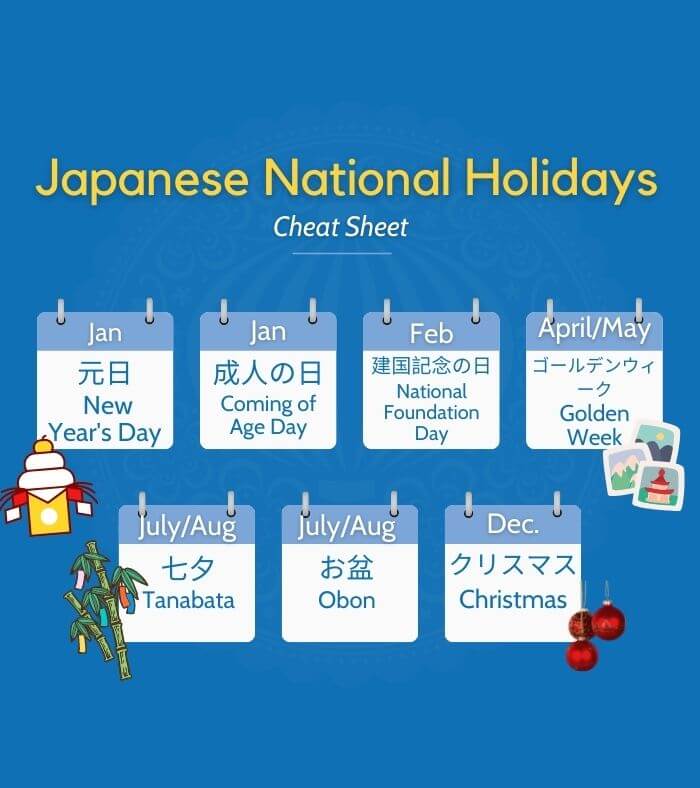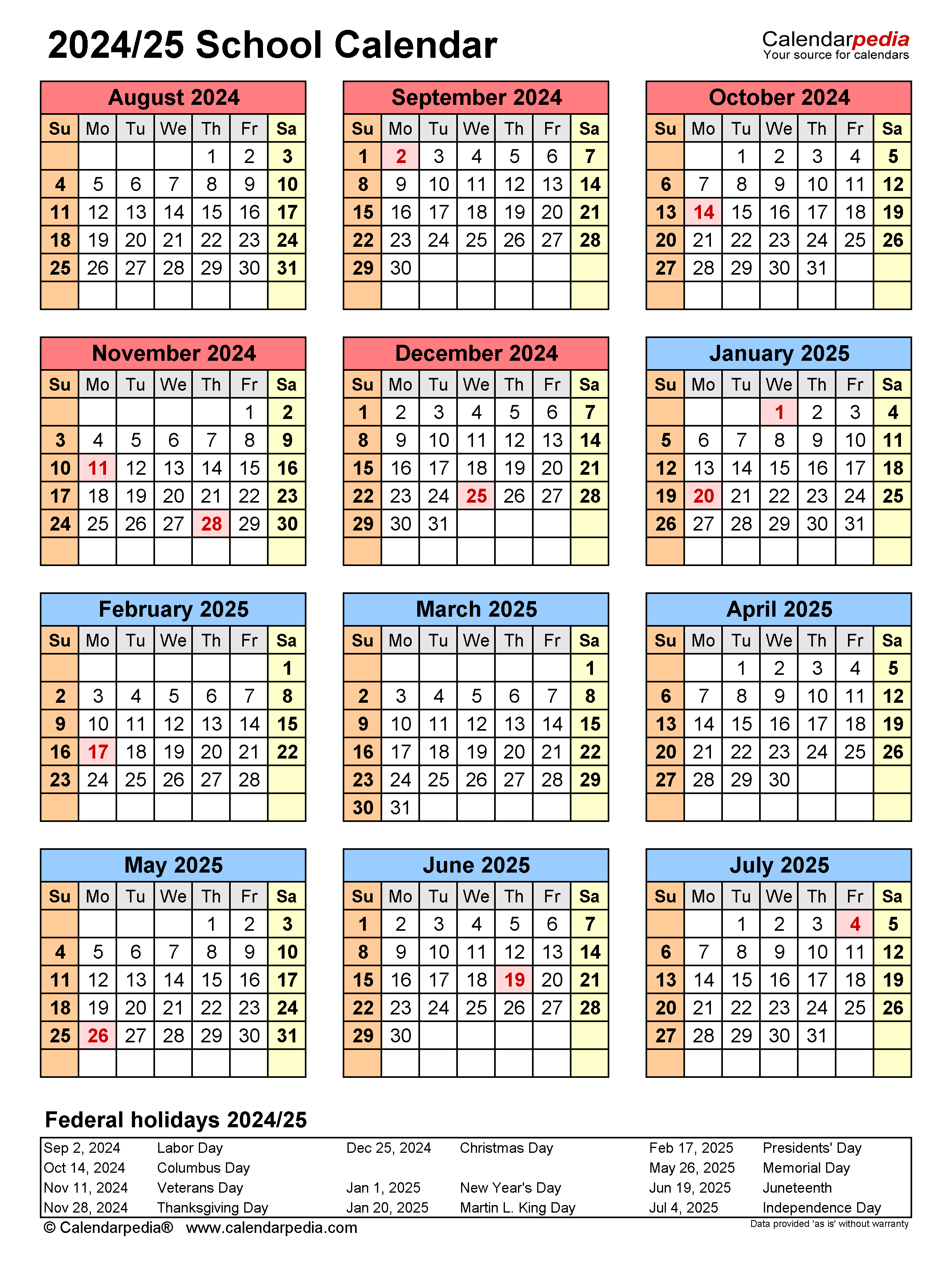Navigating School Holidays in Japan: A Comprehensive Guide for 2025
Related Articles: Navigating School Holidays in Japan: A Comprehensive Guide for 2025
Introduction
With enthusiasm, let’s navigate through the intriguing topic related to Navigating School Holidays in Japan: A Comprehensive Guide for 2025. Let’s weave interesting information and offer fresh perspectives to the readers.
Table of Content
Navigating School Holidays in Japan: A Comprehensive Guide for 2025

Japan’s school holiday system, known for its unique structure and timing, presents both opportunities and challenges for families, travelers, and educators alike. Understanding the nuances of these periods is crucial for effective planning and maximizing the benefits they offer. This comprehensive guide provides a detailed overview of school holidays in Japan for 2025, exploring their significance, practical considerations, and potential impact.
The Japanese School Calendar: A Unique Structure
Japan’s school year commences in April and concludes in March, deviating significantly from the traditional September-to-June academic calendar prevalent in many Western countries. This system is largely influenced by historical factors, including the agricultural calendar and the need to accommodate seasonal weather patterns.
Key School Holiday Periods in 2025
-
Spring Break (Spring Vacation): Typically occurs in late March or early April, coinciding with the end of the academic year. This period offers a chance for students to recharge and engage in extracurricular activities.
-
Summer Vacation (Summer Break): The longest school holiday, stretching from late July to late August. This extended break provides ample opportunity for family vacations, travel, and leisure activities.
-
Golden Week: A series of national holidays in late April and early May, offering a week-long break for many Japanese citizens. While not a dedicated school holiday, Golden Week often overlaps with the end of Spring Break, creating an extended vacation period.
-
Autumn Vacation (Autumn Break): A shorter break in late September or early October, offering a respite from the academic routine.
-
Winter Vacation (Winter Break): Typically spanning December and January, this period provides a chance for students to enjoy winter festivities and family gatherings.
Factors Influencing School Holiday Dates
While the general structure of the school calendar remains consistent, specific dates for school holidays can vary slightly from year to year. These variations are influenced by factors such as:
- National holidays: The scheduling of national holidays can impact the timing of school breaks.
- Local events: Regional events or festivals may necessitate adjustments to the school calendar.
- School district policies: Individual school districts may have their own specific policies regarding holiday dates.
Importance and Benefits of School Holidays
School holidays play a critical role in the educational and social development of Japanese students. These periods offer:
-
Rest and Recuperation: Extended breaks provide students with valuable time to rest, recharge, and de-stress from the academic demands of the school year.
-
Family Bonding: School holidays facilitate quality time for families to engage in shared activities, fostering stronger bonds and creating lasting memories.
-
Exploration and Learning: Travel and leisure activities during school holidays offer opportunities for students to explore new cultures, broaden their horizons, and acquire valuable life skills.
-
Personal Growth: Extended periods away from the classroom allow students to pursue personal interests, develop talents, and engage in activities that contribute to their overall well-being.
Practical Considerations for Planning
For individuals and families planning travel or other activities during school holidays, it is crucial to consider the following practical aspects:
-
Peak Season: School holidays, particularly summer vacation, coincide with peak travel season in Japan. This can lead to higher prices, crowded attractions, and limited availability for accommodation and transportation.
-
Accommodation Bookings: Advance bookings are highly recommended, especially during popular periods like summer vacation and Golden Week.
-
Transportation: Public transportation, particularly trains and buses, can become congested during school holidays. Consider alternative modes of transport or plan your journeys well in advance.
-
Cultural Sensitivity: Be mindful of cultural norms and customs during your travels, especially during festivals and religious holidays.
FAQs: Addressing Common Questions
Q: Are school holidays the same for all schools in Japan?
A: While the overall structure of the school calendar is consistent nationwide, specific dates for school holidays can vary slightly between school districts. It is recommended to check with individual schools or school districts for accurate information.
Q: How long are school holidays in Japan?
A: The length of school holidays varies depending on the specific break. Summer vacation is the longest, typically spanning several weeks. Other holidays, such as Spring Break and Autumn Break, are shorter, lasting a few days to a week.
Q: What are some popular travel destinations during school holidays?
A: Popular destinations during school holidays include major cities like Tokyo and Kyoto, as well as scenic areas like the Japanese Alps, Hakone, and the island of Okinawa.
Q: Are there any special events or festivals during school holidays?
A: School holidays often coincide with significant festivals and events, such as the Obon Festival in August, the New Year’s celebrations in January, and various local festivals throughout the year.
Tips for Maximizing School Holidays
-
Plan in Advance: Plan your travel and activities well in advance, especially during popular periods, to secure accommodation, transportation, and tickets.
-
Consider Alternative Destinations: Explore less crowded destinations or travel during off-peak periods to avoid the rush and enjoy a more relaxed experience.
-
Engage in Local Culture: Take advantage of opportunities to immerse yourself in Japanese culture by attending festivals, trying local cuisine, and interacting with locals.
-
Pack Light: Minimize luggage to facilitate easier travel and avoid unnecessary baggage fees.
-
Stay Flexible: Be prepared for unexpected delays or changes in plans, and maintain a positive and adaptable attitude.
Conclusion: Embracing the Opportunities of School Holidays
School holidays in Japan offer a unique opportunity for families, travelers, and educators to experience the country’s rich culture and diverse landscapes. By understanding the nuances of the school calendar and planning accordingly, individuals can maximize the benefits of these periods, fostering personal growth, strengthening family bonds, and creating lasting memories. As Japan continues to evolve and embrace global trends, the school holiday system is likely to undergo further adjustments. However, the fundamental importance of these breaks for students’ well-being and development will remain paramount.








Closure
Thus, we hope this article has provided valuable insights into Navigating School Holidays in Japan: A Comprehensive Guide for 2025. We appreciate your attention to our article. See you in our next article!